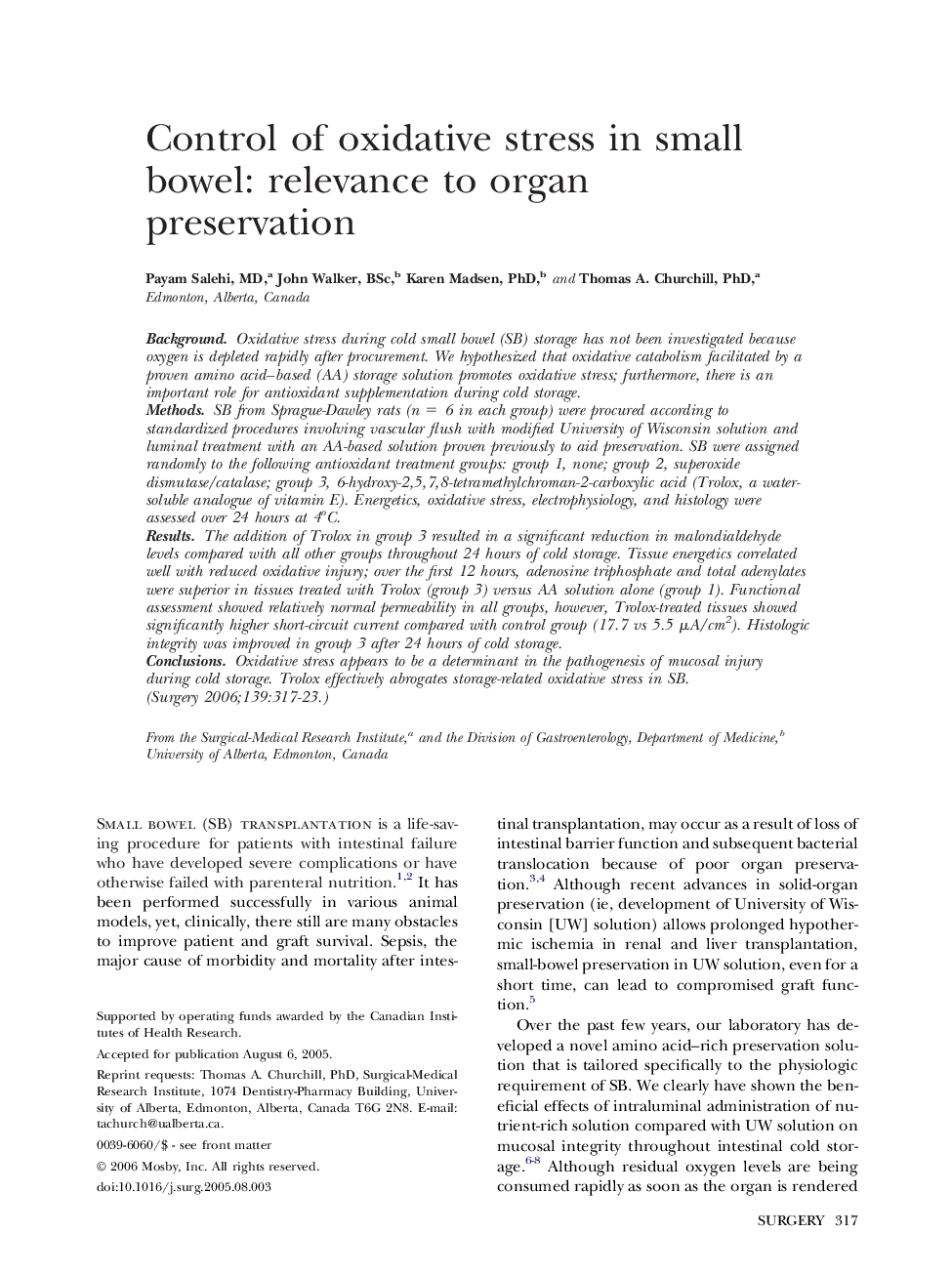| Article ID | Journal | Published Year | Pages | File Type |
|---|---|---|---|---|
| 4310222 | Surgery | 2006 | 7 Pages |
BackgroundOxidative stress during cold small bowel (SB) storage has not been investigated because oxygen is depleted rapidly after procurement. We hypothesized that oxidative catabolism facilitated by a proven amino acid–based (AA) storage solution promotes oxidative stress; furthermore, there is an important role for antioxidant supplementation during cold storage.MethodsSB from Sprague-Dawley rats (n = 6 in each group) were procured according to standardized procedures involving vascular flush with modified University of Wisconsin solution and luminal treatment with an AA-based solution proven previously to aid preservation. SB were assigned randomly to the following antioxidant treatment groups: group 1, none; group 2, superoxide dismutase/catalase; group 3, 6-hydroxy-2,5,7,8-tetramethylchroman-2-carboxylic acid (Trolox, a water-soluble analogue of vitamin E). Energetics, oxidative stress, electrophysiology, and histology were assessed over 24 hours at 4°C.ResultsThe addition of Trolox in group 3 resulted in a significant reduction in malondialdehyde levels compared with all other groups throughout 24 hours of cold storage. Tissue energetics correlated well with reduced oxidative injury; over the first 12 hours, adenosine triphosphate and total adenylates were superior in tissues treated with Trolox (group 3) versus AA solution alone (group 1). Functional assessment showed relatively normal permeability in all groups, however, Trolox-treated tissues showed significantly higher short-circuit current compared with control group (17.7 vs 5.5 μA/cm2). Histologic integrity was improved in group 3 after 24 hours of cold storage.ConclusionsOxidative stress appears to be a determinant in the pathogenesis of mucosal injury during cold storage. Trolox effectively abrogates storage-related oxidative stress in SB.
